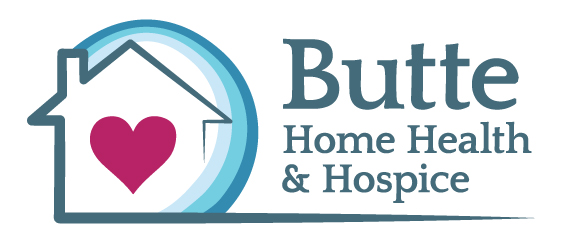Knowing how to start the conversation about hospice is just as powerful as knowing when to start the conversation. We all feel that we will have more time with our aging parents or loved ones, but the reality is we will all face a day when we will need to talk about end of life choices.
Having the conversation about hospice with your loved one can be very difficult. However, it has been found that patients who have these conversations with their families and care providers often receive more desirable care and outcomes they prefer. Having these conversations allows patients to address their fears and wishes regarding the care they receive and most importantly, make their wishes known.
Studies have shown that people who spend their final days in hospitals experience more discomfort both physically and mentally than those who remain in the comfort of their own home surrounded by family and loved ones. Knowing your options and sharing your wishes with your loved ones and care providers helps to ensure you get the care you want. Having these conversations early on allows patients to take control over lives.
Before starting the conversation, it would be wise to educate yourself about hospice care. It is not a term used to describe a place; it is a phrase used to describe a type of care. The word hospice comes from the word hospitality and it is rooted in the idea that death is a natural part of life and that individuals who are facing death should be able to pass on in a safe and comfortable environment with dignity. Hospice care focuses on managing pain and relieving stress and symptoms associated with a major illness or disease. Often called “comfort care”, the goal is to improve quality of life for the patient and their family.
Hospice care is intensive comfort care that alleviates pain and suffering, enhancing the quality of life for patients with life-limiting illnesses and their loved ones by addressing their medical, emotional, spiritual and grief needs. There is mounting data that suggests hospice is often times sought too late.
Many hospice professionals suggest a person thinks about hospice long before they face a medical crisis. As you begin with any serious topic, beginning the conversation can be difficult, but choosing a private environment, free from distractions can be helpful. Look for an opening in the conversation; listen for comments about the illness, about giving up, being tired of trips to the hospital, or just wanting to be comfortable. For more ideas, read the blog written by our Chaplain, Bronson Pittman about the 7 Signs It’s Time to Talk to Your Loved One About Hospice
Often, we see families struggle with making end of life decisions for their loved ones. This can be because they do not know what mom or dad would have wanted and they do not want to feel guilty about making the “wrong choice”. Having this conversation with your family also relieves them from having to make the difficult decision of guessing your wishes.
One of the tools we suggest families use is the Five Wishes document which is one type of an Advanced Directive. Five Wishes covers personal, spiritual, legal and medical wishes all in one document and it is simple to understand and complete. This document is unique because it allows an individual to think about their options and document their wishes on their own before sharing with care providers and loved ones.
Five Wishes is a great tool that offers some starters to help begin the conversation. You can begin by talking about recent news events, tv shows, movies or articles you have read that focus on end of life. Maybe you’ve experienced a recent death of a friend or loved one. You can use these times and topics while they are fresh on everyone’s mind to discuss how they would feel if that happened to them and how they would handle the same situation.
Try these conversation starters:
- “That last hospital stay seemed hard on you. I think there is a way we can avoid future hospitalizations.”
- “We can manage your care right here, at home.”
- “You don’t have to be in pain anymore. Hospice can help. They are experts in pain management and caring for people with this illness.”
- “Lately, you seem to be struggling more with breathing, walking and eating.”
- “I would like to call Hospice for you so that we can see how they might be able to help you.”
To continue the conversation, it’s a good idea to include your healthcare providers. This includes your primary care physician, or other physicians you may be seeing. Hospice liaisons are great resources as well and are experienced at answering common questions. For more on this topic, read our interview with our Medical Director, Charles Garretson about the physician perspective of hospice care.
Family members and caregivers often feel uncomfortable talking about death and end life care. However, they may be some of the most important conversations we have with our loved ones. If we don’t talk about end of life choices, how will we know what they want?
The truth is that accidents can happen to anyone at any time. It is best to be prepared to handle situations in a confident way and not be left questioning choices or actions. “No one wants to guess what kind of treatment their loved one would want, and everyone wants to feel like they honored their loved one’s choices.”

Erica Petersen is a Community Educator at Butte Home Health and Hospice where she’s worked since 2013. Most of her work includes public outreach, working with healthcare partners, and helping families and patients transition to care in the home. Erica was born and raised on the central coast and moved to Chico for school and fell in love with the area. A graduate of CSU, Chico, she enjoys being outdoors, working out, and spending time with her husband, family and dogs.

Megan Anderson is a Community Educator at Butte Home Health and Hospice where she has worked since 2010. Most of her work includes public outreach, community events, and educating patients and families on care in the home. Megan graduated from San Diego State University in 2009, but returned to Chico, which is her hometown to be closer to family. She enjoys spending time with her two young children and her husband.







